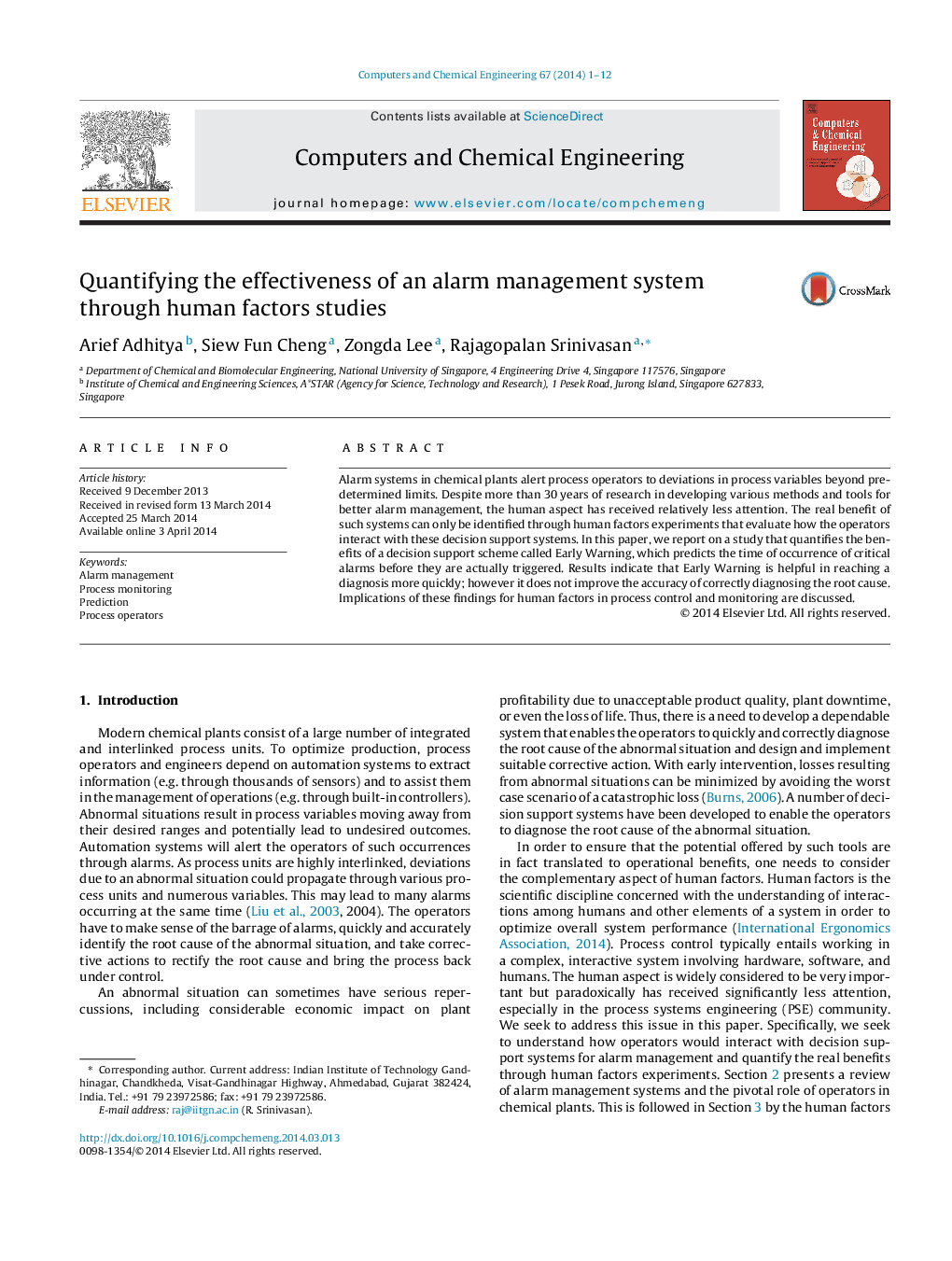| Article ID | Journal | Published Year | Pages | File Type |
|---|---|---|---|---|
| 172376 | Computers & Chemical Engineering | 2014 | 12 Pages |
•Alarm systems are critical to ensuring safety in chemical plants.•Real benefit of alarm systems can only be identified through human factors experiments that evaluate how operators utilize the decision support systems.•In this paper, we experimentally quantify the benefits of Early Warning.•Our results indicate that Early Warning is helpful in reaching a diagnosis more quickly.•However it does not improve the accuracy of correctly diagnosing the root cause.
Alarm systems in chemical plants alert process operators to deviations in process variables beyond predetermined limits. Despite more than 30 years of research in developing various methods and tools for better alarm management, the human aspect has received relatively less attention. The real benefit of such systems can only be identified through human factors experiments that evaluate how the operators interact with these decision support systems. In this paper, we report on a study that quantifies the benefits of a decision support scheme called Early Warning, which predicts the time of occurrence of critical alarms before they are actually triggered. Results indicate that Early Warning is helpful in reaching a diagnosis more quickly; however it does not improve the accuracy of correctly diagnosing the root cause. Implications of these findings for human factors in process control and monitoring are discussed.
